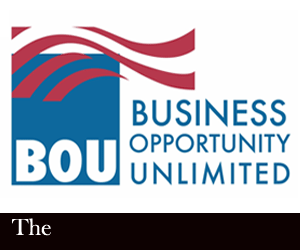Knowing what business is worth and what determines its value is prerequisite for intelligent decision making. John Maynard Keynes said, “There is nothing as dangerous as the pursuit of a rational investment policy in an irrational world.”
Chander Sawhney is Senior Manager at Corporate Professionals Capital Pvt Ltd and states that Business Valuation is a process to estimate the economic worth of stakeholder’s interest in a business. To determine the Value of any business, the reasons for and circumstances surrounding the business valuation must be pre ascertained. These are formally known as the “Standard of Value” and “Premise of Value”.
To be precise, the “Standard of Value” is the hypothetical conditions under which the business is valued and the “Premise of Value” relates to the assumptions upon which the valuation is based.
Key Facts of Business Valuation:
– Price is not the same as Value
The Value of a business, by whatever business valuation method it is obtained, is not the selling price of the business. As Warren Buffett said, “Price is what you pay; Value is what you get.” They are not the same.
– Value varies with Person, Purpose and Time
The Value is a subjective term and can have different connotations meaning different things to different people and the result will not be the same, should the context or time changes.
Some Basic Reasons to get Business Valuation
– Buying or Selling Business;
– Going Public;
– Value Enhancement;
– Regulatory Mandate;
– Dispute Resolution;
– Mergers & Acquisitions;
– Employee Benefit Plans;
– Family Successions;
– Option Compensation Values;
– Voluntary Assessment.
How of Business Valuation – India’s Perspective
Since there are no standards for business valuation in India, in many cases the valuation lacks the uniformity and generally accepted global valuation practices. A number of business valuation models can be constructed that utilize various methods under the broad business valuation approaches.
In determining which of these approaches to use the valuation professional must exercise discretion. Each technique has advantages and drawbacks, which must be considered when applying those techniques to a particular business. Most treatises and court decisions encourage the valuer to consider more than one method, which must be reconciled with each other to arrive at a Value conclusion. Understanding of the internal resources and intellectual capital of the business being valued is as important as the economic, industrial and social environment.
Practically Acceptable Methodologies of Valuation
– Asset Approach (NAV) – Generally the Net Asset Value reflected in books do not usually include intangible assets enjoyed by the business and are also impacted by accounting policies which may be discretionary at times. NAV is not perceived as a true indicator of the fair business value. However, it is used to evaluate the entry barrier that exists in a business and is considered viable for companies having reached the mature or declining growth cycle and also for property and investment companies having strong asset base.
o Book Value Method – It is based on the balance sheet review of assets and liabilities;
o Replacement Cost Method – It is based on current set up cost of plant of a similar age, size and capacity;
o Liquidation Value Method – It is based on estimated realizable value of various assets.
– Income Approach – Future distributable cash/ profit generating ability of any business is widely regarded as the true determinant of its fair business value.
o Discounted Free Cash Flow Method (DFCF) – the value is determined by calculating the net present value of the stream of benefits generated by the business discounted to the present using appropriate cost of capital. DFCF is the most widely used standalone valuation model.
– Relative Approach – In this approach value is determined by comparing the subject, company or assets with its peers in the same industry of the same size and region. Most Valuations in stock markets are relative valuations.
o Comparable Company Market Multiples – The value is determined based on comparison of common variables such as Earnings, Sales, etc.
o Comparable Transaction Multiples Method – The Value is determined based on the Comparable Transactions (M&A) reported in public.
– Market Value Approach – The Market Value method is generally the most preferred method in case of frequently traded quoted shares of Companies listed on Stock Exchanges.
– Contingent Claim Approach – This approach uses the Option Pricing Model to estimate the value of assets, business and equity stake.
– Price of Recent Investment Approach – The recent investment in the business is often taken as the base value if there are no substantial changes since the last investment
– Rule of Thumb Approach – Although technically not a valuation method, a rule of thumb or benchmark indicator is used as a reasonableness check against the values determined by the use of other valuation approaches.
Recent Regulatory Changes
– Institute of Chartered Accountants of India (ICAI) has recently developed and recommended Business Valuation Practice Standards (BVPS) aiming to establish uniform principles, practices and procedures for valuers performing valuation services in India.
– The Companies Bill, 2009 has also provided for a framework to enable fair valuation in companies and, thus, charts a need for professional valuers for standardizing the use of valuation practices in India.
It has been observed that different regulators in India (RBI, Income Tax, SEBI, etc) have prescribed different and in some cases conflicting valuation methodologies creating practical difficulties.
Conclusion
Valuation is more of an art and not an exact science, mathematical certainty is neither determined nor indeed is it possible. Though the value of a business can be objectively determined employing valuation approaches, this value is still subjective, dependent on buyer and seller expectations and subsequent negotiations and use of professional judgment is an essential component of estimating value.
Though internationally valuation standards known as Generally Accepted Valuation Principles (GAVP) or International Valuation Standards (IVS) exist however keeping in view the growing relevance and importance of valuation in business and investment decisions as well as in company processes the development of practice of valuation as a discipline and profession in the present day Indian context has become a necessity because of imperatives of financial markets, emerging global economy, and changing framework of accounting and financial reporting in line with IVS.































 +91 9909960054
+91 9909960054